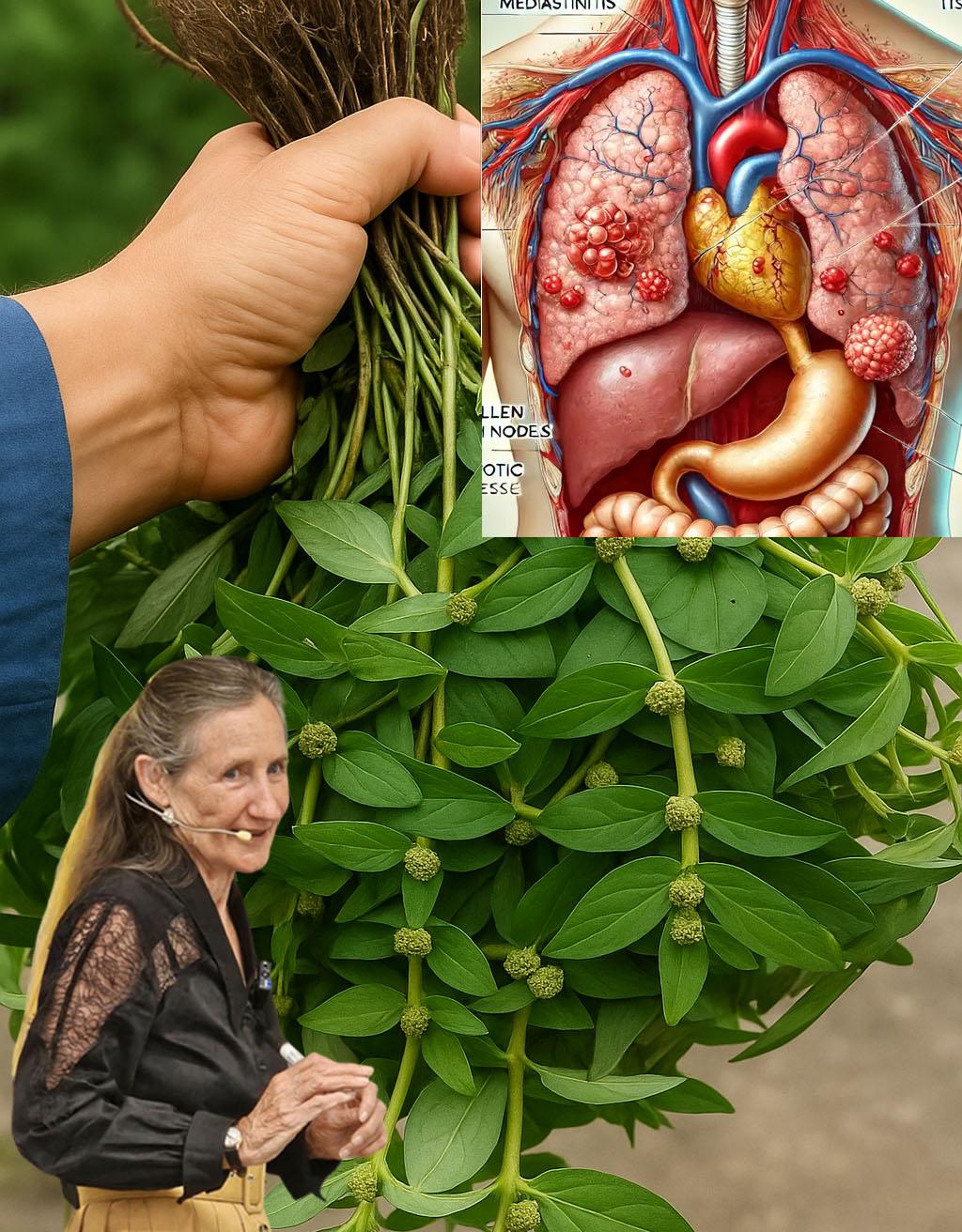Euphorbia hirta, commonly known as the asthma plant or garden spurge, is a widely recognized medicinal herb with a long history of use in traditional medicine systems across Africa, Asia, and Australia. Its benefits stem from a rich profile of bioactive compounds, including flavonoids, tannins, and terpenoids.
Here are 9 key health benefits often attributed to Euphorbia hirta, supported by traditional use and preliminary pharmacological studies:
Supports Respiratory Health (Anti-Asthmatic): This is one of the most prominent traditional uses, reflected in its common name, “asthma weed.” Studies suggest it has bronchodilator and anti-inflammatory properties that help relax the bronchial tubes and relieve symptoms of asthma, chronic bronchitis, and cough.
Aids Digestive Disorders (Anti-Diarrheal): It is traditionally used to treat gastrointestinal issues like severe diarrhea and dysentery. Research confirms its antidiarrheal effect, likely due to the presence of flavonoids like quercitrin, which can enhance fluid absorption and possess antispasmodic action.
Potent Antioxidant Activity: The plant contains numerous polyphenols and flavonoids that demonstrate strong antioxidant and free radical scavenging capabilities. This action helps protect cells from oxidative stress, which is linked to aging and chronic diseases.
Anti-inflammatory Effects: Various extracts of E. hirta have shown significant anti-inflammatory activity in animal models, suggesting a role in reducing inflammation associated with various conditions, including skin ailments and arthritis.
Antimicrobial and Antifungal Action: The plant’s compounds exhibit broad-spectrum antibacterial activity against common pathogens (like E. coli and Staphylococcus aureus) and antifungal activity, supporting its traditional use for skin infections, boils, and wounds.
May Help Manage Blood Sugar (Antidiabetic): Some studies indicate that extracts may possess hypoglycemic effects by lowering blood glucose levels, suggesting a potential benefit for individuals managing diabetes.
Supports Lactation (Galactogenic): In traditional practice, a decoction of the roots or leaves is given to nursing mothers to help stimulate and increase milk production.
Acts as a Natural Diuretic: Extracts have been shown to significantly increase urine output (diuresis), promoting the elimination of excess fluids and potentially aiding in the management of conditions like edema (swelling) and urinary tract issues.
Supports Dengue Fever Recovery: In some folk medicine, particularly in the Philippines (where it is called “tawa-tawa”), it is used as a herbal tea to help inhibit viral responses, manage fever, and, anecdotally, support the recovery of blood platelets in dengue patients.
⚠️ Important Note: While Euphorbia hirta has a long history of traditional use and promising preliminary research, it is not a substitute for professional medical care. Consult a healthcare provider before using this or any herbal remedy, especially if you are pregnant, nursing, or have a pre-existing medical condition.
